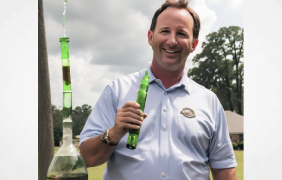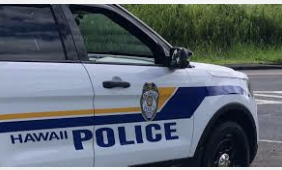Table of Contents
Oregon’s rule limiting the non-resident ownership of licensed psilocybin businesses sunsets on December 31, 2024. That’s a little over six months away. Six months is not that long, especially in the context of getting to know an industry or a business, and putting a thoughtful deal together– one that will generate reasonable returns for an investor without sinking the ship. For all you out-of-staters, now might be a good time to take a fresh look at Oregon.
The Oregon psilocybin residency requirement
The residency requirement is found in the Oregon Health Authority (OHA) administrative rules, at OAR 333-333-4050(1). It’s a “50% or more local ownership” rule, with a sunset date of December 31, 2024. Until that date, majority ownership of a licensed psilocybin business (other than a testing lab) must consist of Oregonians “who have been residents of this state for two or more years.”
Nothing changed on the residency requirement sunset this February, when the Oregon legislative session ended. That means we’re set for the end of the year. Personally, I think that’s good news for everyone already in OHA purview, as well as anyone interested in coming aboard. Oregon psilocybin is going to remain a cottage industry regardless of any residency requirement, and the complexity introduced by ownership and investment restrictions serves no one.
I’ve explained in these pages that the residency requirement is likely unconstitutional, and predicted correctly that no one would challenge it. I also predicted, I think incorrectly, that we’d see all kinds of crazy business structures in the program. However, we haven’t seen multitudes of people kicking down the doors to own and invest in Oregon psilocybin businesses– especially when compared with the early days of adult-use cannabis. This brings me to my next point.
Oregon psilocybin is probably a buyer’s market
The Oregon Capital Chronicle ran a good story last week, titled “Oregon’s psilocybin industry, a year old, seeks customers.” The Chronicle gets into the whys and wherefores of this depressed dynamic, which one could summarize as a simple supply and demand problem. At press time for the Chronicle, roughly 3,500 clients had taken a supervised trip in one of Oregon’s 25 license psilocybin centers. On a pro rata basis, that isn’t a viable run-rate for this type of business.
Back in January of 2023, in a piece I wrote highlighting the “slow start” of the OHA psilocybin program. I gave my top five reasons why things are generally challenging for operators in the local market:
- The lack of a retail sales or an off-site use allowance, to supplement the on-site, supported adult use model
- The high cost of licensing for facilitators in particular (up to $8K for certification, plus $2K in OHA fees annually)
- The length of administration sessions, which can be six hours minimum at the highest doses (and not reimbursable by insurance)
- The decision by 137 towns and counties to opt out of psilocybin services
- Intractable issues caused by federal prohibition, especially around taxation and lack of banking
You could probably add “too many licensed facilitators” and “an expansive unregulated psilocybin market” to that list. None of these things are changing anytime soon.
All of that said, the fact that some (most? all?) OHA psilocybin businesses aren’t that profitable should have the effect of driving down the value of those businesses. This means bargains for anyone with capital, including out-of-staters. Generally speaking, it would be much easier for these newcomers to team up with existing operators after January 1, 2025, than to break ground. I say this because finding a suitable location for one of these businesses can be challenging. Building a local network can be even harder.
Good deals take time
We have all read stories of wildly successful partnerships that were launched in a snap. I love those apocryphal stories, but in my experience the best partnerships take time and feeling out. It’s often said that taking on a business partner is a lot like getting married. Taking on a business investor can be like getting married, too; but to someone who is only in it for the money. (Yes I just came up with that.)
We do a lot of M&A, financing and business propulsion work at the firm. Many of these deals take half a year or more to come together. And I can tell you that, at least in our case, the delays are not caused by lawyer availability. Many deals will start with introductions and exploratory conversations, then move to negotiations, to term sheets, to final documents and finally, a closing. All of this takes time.
During the deal-making period, most prospective investors and co-owners want to look under the hood before handing over money. Many of the agreements we put together contain a diligence continency, in fact. Closing will be contingent on certain targets being hit, or on the buyer’s satisfaction with the state of what they are buying more generally. It’s not uncommon to see parties sign an agreement that closes 30 or 60 or 90 days out.
The Oregon licensed psilocybin market will open to everyone, on equal footing, in about six months. Whether you are an out-of-stater interested in the program, or an existing operator looking for capital, now would be a great time to initiate those conversations.
_____
For a few related posts, check out the following:
Oregon Psilocybin: Preparing for the End of Local Ownership Rules

















